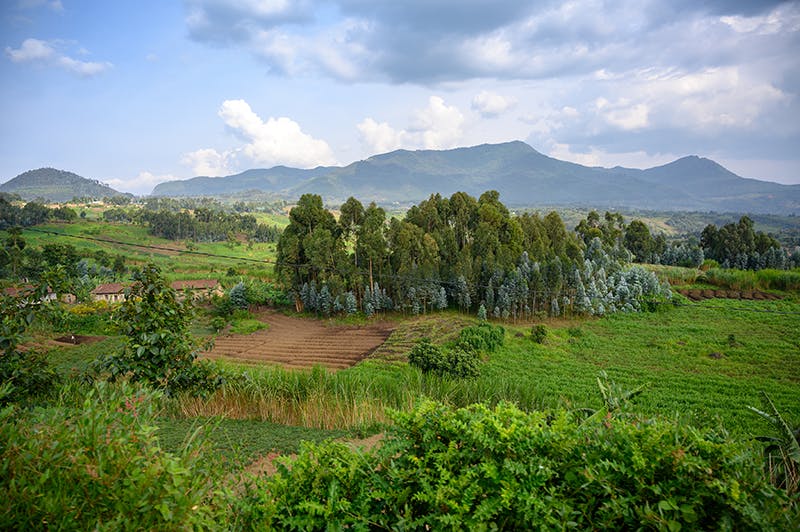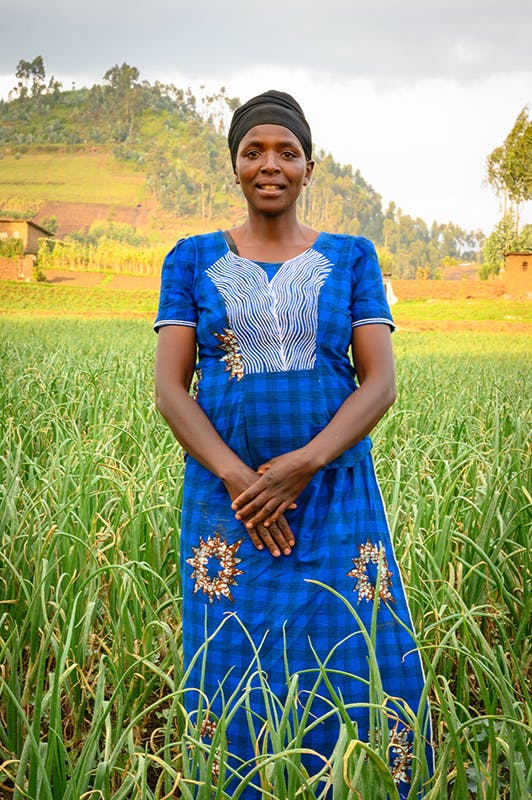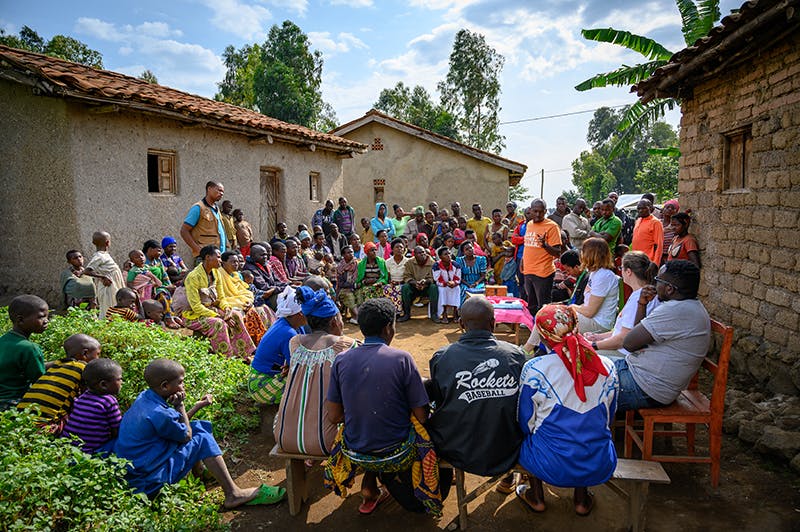Michelle Nicol is a Lendwithcare volunteer and writer. You can find this and others of her blog on her website www.word-struck.com. This has been reproduced here with her kind permission.
They call Rwanda the land of a thousand hills. I think they seriously underestimated. When travelling, almost any direction is either up or down. And everyone seems to be going somewhere. From the busy commercial capital out to the rural edges of Volcanoes National Park, locals are always on the move, carrying goods balanced on their heads, or on impossibly overloaded bicycles.

©Gary Nicol/2019
We have travelled to Rwanda with Tracey Horner, the head of Lendwithcare, an initiative of global humanitarian organisation CARE International. We have the opportunity to see for ourselves how they carry out an evaluation of the partners they work with in the country and to meet entrepreneurs supported by their micro finance programmes.
The scenery is stunning. The hills are lush and green. Bananas and eucalyptus grow alongside more familiar beech and birch. We see monkeys run into the trees and kites circling on the thermals. We pass waterfalls and still lakes that wouldn't look out of place in the Pyrenees.
Rwanda has moved on from the genocide in 1994 during which one in eight of the population were brutally murdered. It was hard at times to hear the testimonies of survivors at the Memorial Museum in Kigali, but alongside the spirit of remembrance, there is also a movement for renewal.
The country has one of the fastest growing economies in Central Africa and the government has plans to transform the country from a low-income agriculture-based economy to a more knowledge focused service-based economy by 2020.
There is barely a scrap of litter anywhere. Polythene bags have been banned here since 2008 and the government recently approved a draft law to phase out single use plastic. But while the landscape is beautiful, the terrain makes life, especially in rural areas, very hard indeed.
As we travel away from the capital city, the terraced hillsides give root to potatoes, onions, maize and other crops. We see cows, sheep and pigs as we travel through the Western District. But the steep hills only allow for small parcels of land that are difficult to cultivate. Hoes not tractors are the tools of the farmer. Soil is turned and worked by hand, back breaking inch by inch.
Travel and transport become barriers to opportunity as smooth paved roads give way to dusty tracks and rough routes pocked with hard volcanic rocks. We lurch and rumble, bumping and rolling in our 4x4 until we can go no further and complete the rest of our journey on foot.
Odette and her husband farm in this hard green landscape. They recently saved enough money to move from a house built of dung and sticks to one built from wood and stones. The cool breeze that whips up under the shadow of the volcano reflects the economic reality that their hard-grown potatoes and onions will fetch only a third of the price they're worth in the field because of the difficulty of transporting them to market.

©Gary Nicol/2019
Odette is just one of many entrepreneurs supported by Lendwithcare's microfinance partner in Rwanda, Umutanguha. We have travelled to this district to learn more about their work and the challenges they face in their mission to bring financial inclusion to everyone in this country. As Lendwithcare lenders, it's humbling to see first-hand how small crowd-sourced loans make a big difference to people here.
Members of the Tuzamurane group provide an enthusiastic welcome to their weekly meeting, singing and clapping as we approach. Umutanguha and Lendwithcare help support hundreds of groups like these throughout Africa through village savings and loans associations.

©Gary Nicol/2019
The villagers get financial education through CARE Rwanda and start by pooling small amounts of savings with a view to investing these in a project that will benefit all the group members. For example, they may get a better price for seeds and fertiliser by buying in bulk. Through Umutanguha and Lendwithcare they are able to borrow larger sums to improve their businesses and income.
Individuals in the group stand and tell us proudly of their successes. One woman has worked hard and saved enough money to buy a cow. A man now owns a patch of land where he grows good quality potato seedlings that he shares with other group members.
We stayed in Rwanda for ten days, spending much of that time volunteering with Umutanguha and Lendwithcare, visiting entrepreneurs in rural areas and delivering training to the staff who travel long distances to help villagers manage their savings and distribute loans. We also spent a couple of days in the Twin Lakes, scoping out a possible future cycling challenge.
They were long and sometimes tiring days, but our spirits were lifted by the warm welcome and beautiful surroundings. Driving back to the capital Kigali at dusk in an air conditioned 4x4, watching the sun dip below the hills and seeing people still walking the roads, we reflected that we don't know how lucky we are.